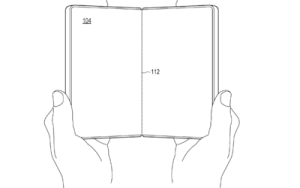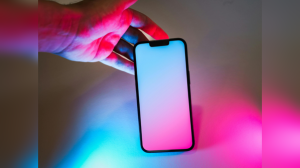Blue light damage: 7 reasons why not using the phone can improve health
We've all been there: lying in bed, mindlessly scrolling through social media or responding to late-night texts. But this common habit could be quietly harming your health. Here are seven compelling reasons why taking a break from your phone before bed is a smart move for your body and brain.
1. Improves Sleep Quality
The blue light emitted from phones disrupts the production of melatonin, a crucial hormone that regulates sleep. By avoiding your phone at night, you allow your body to relax naturally, leading to quicker and longer sleep. This translates to less tossing and turning and more deep, restorative sleep. Consistent exposure to blue light at night can lead to insomnia, fatigue, and long-term disruptions in your circadian rhythm.

2. Regulates Blood Sugar Levels
Consistent, quality sleep is strongly linked to stable blood sugar levels. Insufficient sleep can contribute to insulin resistance over time. Establishing a bedtime routine that excludes phone use enhances sleep quality, enabling your body to regulate glucose levels more effectively and reduce the risk of metabolic diseases like type 2 diabetes.

3. Boosts Mood and Decreases Anxiety
Using your cell phone late at night often exposes you to stressful information or social comparisons, leading to overstimulation, anxiety, and disrupted emotional balance. Avoiding screens before bed helps quiet the nervous system, improves mental clarity, and promotes a more positive mood upon waking.

4. Prevents Eye Strain and Headaches
Staring at screens for extended periods, particularly in the dark, can cause digital eye strain, dryness, and even headaches. Reducing screen time before bed allows your eyes to rest, promoting long-term visual comfort and reducing fatigue related to eye strain.

5. Encourages Healthy Weight Management
Insufficient sleep, often caused by excessive late-night phone use, can trigger cravings for high-calorie foods and disrupt appetite-regulating hormones like ghrelin and leptin. By getting more restful sleep, your metabolism functions more efficiently, reducing the likelihood of overeating the next day.

6. Boosts Brain Function and Memory
Deep sleep is essential for your brain to process and store memories. When your sleep is not interrupted by screens, your cognitive performance improves. You'll wake up with enhanced concentration, problem-solving skills, and mental clarity.

7. Supports Cardiovascular Health
Chronic sleep deprivation, often worsened by late-night scrolling, contributes to high blood pressure, inflammation, and cardiovascular disease. Sleeping earlier and avoiding digital distractions helps maintain healthy heart rhythms and reduces your long-term cardiovascular risk.

Newer articles
-
 Government issues warning for these Android smartphone and tablet users
Government issues warning for these Android smartphone and tablet users
-
 This new AI tool can help you book train tickets, get refunds and check details on IRCTC website and app
This new AI tool can help you book train tickets, get refunds and check details on IRCTC website and app
-
 Mahbub Anam replaces Faruque Ahmed as new BPL chairman
Mahbub Anam replaces Faruque Ahmed as new BPL chairman
-
 India vs England: Can Bazball outplay India's new era? Key battles and what to expect
India vs England: Can Bazball outplay India's new era? Key battles and what to expect
-
 Anderson–Tendulkar Trophy: India–England Test series enters new era, tribute to cricketing legends
Anderson–Tendulkar Trophy: India–England Test series enters new era, tribute to cricketing legends
-
 Microsoft plans to take on iPhone and Android smartphones with this new device
Microsoft plans to take on iPhone and Android smartphones with this new device
-
 Tait rues new-ball miss as Nissanka punishes Bangladesh
Tait rues new-ball miss as Nissanka punishes Bangladesh
-
 iQoo Z9 Turbo new leak reveals key specifications: All the details
iQoo Z9 Turbo new leak reveals key specifications: All the details
-
 Teen Innovator Soars to New Heights: Mehar Singh Breaks Guinness World Record with Lightning-Fast Drone Ascent
Teen Innovator Soars to New Heights: Mehar Singh Breaks Guinness World Record with Lightning-Fast Drone Ascent
-
 Blue light damage: 7 reasons why not using the phone can improve health
Blue light damage: 7 reasons why not using the phone can improve health